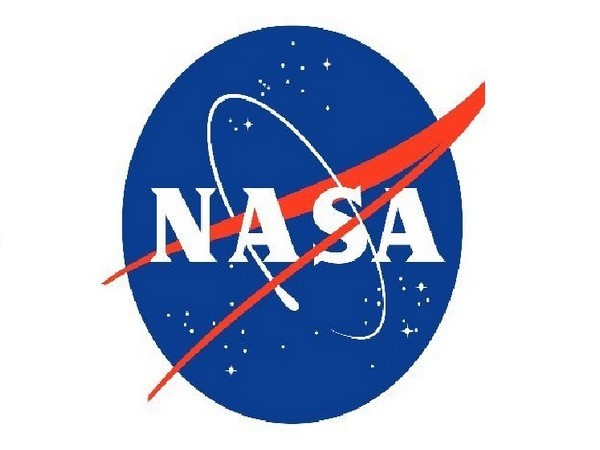Science News Roundup: NASA raises concerns about SpaceX satellite deployment plan; European scientists set nuclear fusion energy record and more
The finding suggested that the animals had previous coronavirus infections and were vulnerable to repeated reinfections with new variants, researchers led by Pennsylvania State University scientists said. NASA raises concerns about SpaceX satellite deployment plan The National Aeronautics and Space Administration (NASA) raised concerns about SpaceX's plan to deploy about 30,000 satellites for its Starlink, as have some major companies.

Following is a summary of current science news briefs.
Astra Space fails to deliver satellites to orbit in first operational launch
Commercial launch startup Astra Space Inc reported that its rocket failed to deliver its satellite payloads to orbit in on Thursday the company's first operational flight, a mission for NASA. Astra director of product management, Carolina Grossman, said during a livestream minutes after the launch from Cape Canaveral Space Force Station in Florida that "an issue has been experienced during flight that prevented the delivery of our customer payloads to orbit."
European scientists set nuclear fusion energy record
European scientists on Wednesday announced fresh progress in the drive to make nuclear fusion a practical, safe and clean energy source, saying an experiment at a site in England set a record for the amount of fusion energy produced, more than doubling the previous mark. Researchers said they achieved 59 megajoules of sustained fusion energy - the same process that powers stars including the sun - at a facility in Culham, near Oxford.
French virologist who co-discovered HIV virus has died - AFP
French virologist Luc Montagnier, who won a Nobel Prize for his part in discovering the human immunodeficiency virus (HIV) that causes AIDS, has died, French news agency AFP reported on Thursday. Montagnier, who was 89, shared half of the 2008 Nobel Prize for Medicine with fellow French scientist Francoise Barre-Sinoussi for their role in discovering the virus. The other half was awarded to German cancer researcher Harald zur Hausen.
Risk of new heart problems jumps after COVID; mRNA shot side effects no different for cancer patients
The following is a summary of some recent studies on COVID-19. They include research that warrants further study to corroborate the findings and that has yet to be certified by peer review. Risk of new heart problems much higher after COVID recovery
The sad and sorry story of Dolly the diseased and doomed dinosaur
In a warm and humid Jurassic Period landscape lush with plant and animal life in what is now southwest Montana, an adolescent long-necked dinosaur was miserably sick with flu and pneumonia-like symptoms - probably feverish and lethargic with labored breathing, coughing, sneezing and diarrhea. Some 150 million years later, the skeletal remains of that unfortunate beast, nicknamed "Dolly," represent the first-known dinosaur with evidence of respiratory illness - abnormal growths resembling fossilized broccoli on three neck bones that formed in response to an infection in air sacs linked to its lungs.
Solar storm knocks out 40 newly launched SpaceX satellites
A geomagnetic storm triggered by a large burst of radiation from the sun has disabled least 40 of the 49 satellites newly launched by SpaceX as part of its Starlink internet communications network, the company said. The incident was believed to mark the largest collective loss of satellites stemming from a single geomagnetic event, and was unique in the way it unfolded, Harvard-Smithsonian astrophysicist Jonathan McDowell said on Wednesday.
Discovery of Omicron in New York deer raises concern over possible new variants
The discovery of the Omicron variant in white-tailed deer in New York has raised concerns that the species, numbering 30 million in the United States, could become hosts of a new coronavirus strain, a lead researcher said on Tuesday. Blood and some nasal swab samples from 131 deer captured on New York's Staten Island revealed that nearly 15% had virus antibodies. The finding suggested that the animals had previous coronavirus infections and were vulnerable to repeated reinfections with new variants, researchers led by Pennsylvania State University scientists said.
NASA raises concerns about SpaceX satellite deployment plan
The National Aeronautics and Space Administration (NASA) raised concerns about SpaceX's plan to deploy about 30,000 satellites for its Starlink, as have some major companies. Elon Musk's SpaceX previously received authorization for about 12,000 satellites to offer broadband internet and has requested authorization for a second-generation constellation of 30,000 satellites.
(With inputs from agencies.)
ALSO READ
European Markets Wobble Amid Global Trade Tensions and Holiday Trading
Tech and Commodities Lead Steady European Market Start
European Regulators Crack Down on Big Tech's Antitrust Practices
European Markets Tread Cautiously Amidst Tech and Commodity Gains
U.S.-Russia Peace Talks Stalled Amid European, Ukrainian Concerns










